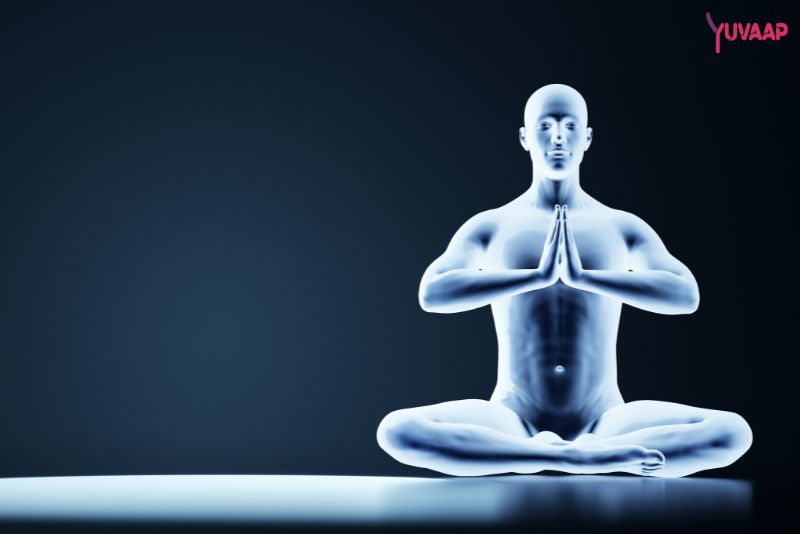Have you ever felt overwhelmed by the noise of daily life—school, work, friends, and everything else that demands your attention? Maybe it seems like everyone is suggesting you try mindfulness, but you’re not even sure what that means or if it’s just another passing trend. In this article, we’re going to clear up some confusion and show how mindfulness isn’t just easy to do, but it’s also incredibly helpful for people just like you who are looking for ways to relax and improve their mental health.
Mindfulness is much more than a buzzword; it’s a simple practice that can fit into your life, exactly where you are now. Whether you’re super busy, dealing with school stress, or just feeling out of sorts, mindfulness can help you handle those feelings better. In the next few sections, we’ll explore what mindfulness is, bust some common myths about it, and share some easy ways to make it part of your everyday life. We’ll also look at how it can help connect your mind and body, making you feel more balanced and happy.
So, let’s get started by understanding exactly what we mean by mindfulness.
What is Mindfulness?
Mindfulness means paying full attention to what’s happening right now, without letting your mind get distracted by the past or the future. It’s about noticing the world around you and also what you’re feeling inside, but in a calm way that doesn’t judge or try to change anything. Imagine sitting in your backyard, watching a butterfly flit from one flower to another. Mindfulness is like that—just noticing and enjoying the moment without worrying about your homework or what’s for dinner.
Sometimes people think that mindfulness is a big, complicated thing that only certain kinds of people can do, or that it’s tied up with lots of religious or spiritual practices. While it’s true that mindfulness has roots in ancient practices like meditation, today it’s used by people all over the world, from all walks of life, to feel better and clear their minds. It’s not about changing who you are or believing in something specific; it’s about giving yourself a break from the chaos of thoughts and worries that can crowd your mind.
Mindfulness doesn’t require any special equipment or a lot of time, which makes it perfect for anyone, even busy students or parents. You can practise mindfulness while walking to school, eating lunch, or even during class or work by simply focusing on your breath and the sensations in your body. This can help you feel more relaxed and focused, which is great for your mental health.
By practising mindfulness, you’re taking a little time to be with yourself, without stress or pressure. It’s like pressing the pause button on a busy day, giving yourself a moment to rest and recharge. This can make a big difference in how you handle stress and deal with everyday challenges.
All About Mindfulness
Mindfulness might sound like just sitting quietly, but it’s actually packed with different activities you can try. All these activities help you slow down and notice the world around you, which is really helpful when you feel too busy or stressed.
Mindful Breathing

This is a great starting point. It’s as simple as it sounds – you just focus on your breath. You can do this anywhere, anytime. Sit down in a quiet spot, close your eyes if you want, and notice how you breathe in and out. This helps calm your mind and makes you feel less anxious.
Observation

Next, try to just observe things around you without judging them. It could be anything – like how your desk is messy or how the trees move with the wind outside your window. The point is not to think about changing anything, but just to notice and accept things as they are. This can make you feel more at peace with your surroundings.
Body Scan

Doing a body scan means paying attention to each part of your body in turn. Lie down or sit comfortably and start from your toes, moving up to your head. Notice where you feel tense or relaxed. This not only helps you relax but also connects you more deeply with your body.
Mindful Listening

This involves listening to sounds around you without getting lost in your thoughts about them. You might listen to birds chirping, cars passing by, or even the hum of your computer. It’s about being present with the sound, which can help you stay focused in the moment.
These practices can be short, just a few minutes, and done regularly, they can really help you manage stress and feel more balanced in your busy life.
How Does Mindfulness Work?
You might wonder how just paying attention to your breath or noticing things can make such a big difference in your life. It’s all about what happens in your brain when you practice mindfulness.
Impact on the Brain
When you focus on the present moment, your brain gets a break from thinking about the past or worrying about the future. This reduces stress and improves your mood. Studies show that mindfulness can actually change the parts of your brain related to attention and emotional regulation.
Reducing Stress
Regular mindfulness practice makes you calmer and less likely to get upset by daily frustrations. Over time, this can lead to lower blood pressure, better sleep, and fewer problems with things like anxiety and depression.
Emotional Regulation
By observing your thoughts and emotions without judging them, you learn to understand them better. This helps you react more calmly and wisely in tough situations. Instead of just reacting on impulse, you can choose how to act, which is a powerful skill in both personal and professional life.
Cognitive Flexibility
The more you practice mindfulness, the better you get at thinking about things in new and different ways. This can help you solve problems and be more creative in your day-to-day activities.
Mindfulness helps you build skills that improve your mental health and overall well-being, making it easier to enjoy life and handle challenges. For visual guidance and more detailed instructions on mindfulness practices, check out our series of meditation videos on the Yuvaap Meditation Practices.
Common Misconceptions About Mindfulness
While mindfulness has gained popularity for its profound benefits, there are several misconceptions that can confuse or deter newcomers. Here, we address some of the most common myths to clarify what mindfulness really entails and encourage a more informed practice.
Misconception 1: Mindfulness Requires Emptying Your Mind
Reality: One of the biggest misconceptions about mindfulness is that it requires you to empty your mind of thoughts. However, mindfulness is actually about becoming aware of your thoughts and feelings without judgment. The goal is not to push thoughts away but to observe them as they arise, which helps you understand your mental patterns better.
Misconception 2: Mindfulness is a Religious Practice
Reality: While mindfulness has roots in Buddhist meditation, it has evolved into a secular practice that is used in various forms around the world. Today, mindfulness is practiced by people of all backgrounds and religions as a way to improve mental well-being and is not tied to any specific religious or spiritual belief.
Misconception 3: You Need to Meditate for Hours
Reality: Many people believe that mindfulness requires long periods of meditation. However, mindfulness can be practiced in many ways, including brief exercises like mindful breathing or eating that can be done in just a few minutes. Even short, regular sessions can yield significant benefits.
Misconception 4: Mindfulness is Only for Stress Relief
Reality: While it’s true that mindfulness is effective in reducing stress, its benefits are much broader, including improving focus, emotional regulation, and even physical health. Mindfulness can enrich various aspects of your life, from enhancing self-awareness to strengthening relationships.
Misconception 5: Mindfulness Results are Immediate
Reality: Some may expect immediate results from mindfulness practice. However, like any skill, mindfulness takes time and regular practice to develop. Benefits can accumulate gradually, and the impact on mental and physical health becomes more apparent over time.
Misconception 6: Mindfulness is the Same as Relaxation
Reality: While mindfulness can be relaxing, its primary goal is awareness and presence. Relaxation is often a welcome side effect, but the core of mindfulness is learning to stay present with all experiences, including discomfort or pain, which can lead to deeper personal growth.
Misconception 7: Mindfulness is a Quick Fix for Mental Health Issues
Reality: Mindfulness is a beneficial tool that can support mental health, but it is not a cure-all. For individuals dealing with severe mental health issues, mindfulness should be part of a broader treatment plan that might include therapy, medication, or other medical interventions.
Benefits of Mindfulness
Mindfulness is not just a temporary escape from daily stress—it offers numerous lasting benefits that improve your overall health and well-being. Here, we’ll explore these benefits, supported by scientific evidence, so you can see how practicing mindfulness could transform your life.
Reduces Stress
One of the most recognized benefits of mindfulness is its ability to reduce stress. Research shows that mindfulness meditation lowers cortisol levels, the hormone associated with stress. This makes you feel more relaxed and able to handle stress better on a daily basis.
Enhances Emotional Health
Regular mindfulness practice has been linked to improved mood and emotional wellbeing. A study found that mindfulness meditation could be an effective remedy for depression, significantly reducing symptoms of depression in participants across various studies.
Boosts Focus and Concentration
Mindfulness helps enhance your ability to concentrate and focus. Studies suggest mindfulness training showed more significant improvements in focus and cognitive flexibility than those who did not. This can translate into better performance at school or work, helping you tackle tasks with greater efficiency.
Improves Relationships
Being present through mindfulness can also improve your relationships with others. By teaching you to respond rather than react, mindfulness can help you handle interpersonal challenges more effectively. According to a study, couples who practise mindfulness report higher relationship satisfaction, showing improvements in communication and reduced relationship stress.
Decreases Anxiety
Mindfulness is particularly effective in reducing anxiety. A meta-analysis of nearly 40 studies concluded that mindfulness-based therapy was a potent intervention for reducing anxiety symptoms. Regular practice helps people with anxiety focus less on the worry of past or future, and more on the present moment, which naturally reduces anxiety levels. To explore mindfulness techniques specifically tailored to combat anxiety and depression, read our detailed blog on Meditation for Anxiety and Depression.
Enhances Self-Awareness
Practicing mindfulness increases self-awareness, which is crucial for personal development. A study suggests that mindfulness meditation increases self-reflection and reduces self-judgment, allowing individuals to learn more about themselves without feeling overwhelmed by negative thoughts.
Helps with Sleep
Mindfulness meditation can improve the quality of your sleep. A study found that mindfulness meditation helped reduce the severity of insomnia, sleep latency, and overall sleep disturbances among older adults.
Promotes Physical Health
Beyond mental and emotional benefits, mindfulness can also enhance physical health. Research has shown that it can reduce symptoms of various conditions, including chronic pain, heart disease, and gastrointestinal difficulties. A study in the American Heart Journal reported that mindfulness could reduce blood pressure, which is a significant risk factor for heart disease.
To complement your mindfulness practices with nutritional guidance, explore our Yuvaap Kitchen Playlist on YouTube, where you can find recipes and dietary tips that align with holistic wellness principles.
Incorporating Mindfulness in Daily Life
Adopting mindfulness into your daily routine can seem challenging at first, but with a few simple strategies, it becomes more accessible and impactful. Begin your day with mindfulness by trying out a 10-minute meditation. Learn how to start this practice by reading our blog on 10-Minute Meditation to Start Your Day. Here are practical tips to help you start integrating mindfulness into your everyday activities:
Start Small
Begin with just a few minutes a day. Set aside a regular time for mindfulness exercises like breathing or observing your thoughts. Gradually increase the duration as you get more comfortable with the practice.
Use Daily Activities as Opportunities
Mindful practices can be incorporated into routine activities. For example, practice mindful eating by paying attention to the taste, texture, and sensations of your food. Or try mindful walking, where you focus on the experience of walking, noticing the feel of the ground under your feet and the sounds around you.
Set Reminders
In the beginning, it can be helpful to set reminders on your phone or computer to take short mindfulness breaks throughout the day. These can be brief sessions of deep breathing or simply pausing to notice your current state of mind.
Attend Mindfulness Training or Classes
If possible, join a mindfulness training course or attend classes. This can provide structure and guidance, helping you learn effective techniques and establish a regular mindfulness practice.
Practice Regularly
Consistency is key. The more regularly you practice mindfulness, the more natural it will become and the greater benefits you will notice in your stress levels, mood, and overall well-being.
For more morning meditation practices that boost positivity, check out our top five recommendations in the blog Top Five Morning Meditations to Feel Positive.
Embracing mindfulness is a journey towards greater self-awareness and enhanced quality of life. By incorporating mindfulness practices into your daily routine, you can develop a deeper connection with the present moment and enjoy a more balanced, fulfilled life. Whether it’s through simple breathing exercises or more structured activities, mindfulness is a valuable tool for anyone looking to foster peace and well-being in their daily existence.
FAQs

Anjani Kumar Shrivastava, a distinguished yoga expert with decades of experience, brings healing and wisdom through yoga therapy, meditation, and Ayurvedic principles. His remarkable Read more



